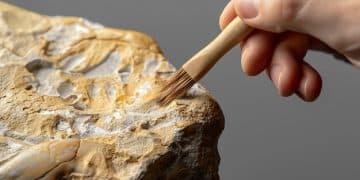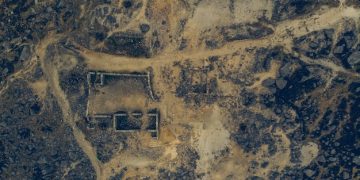The Ethics of Archaeological Excavation: Respecting Native American Heritage
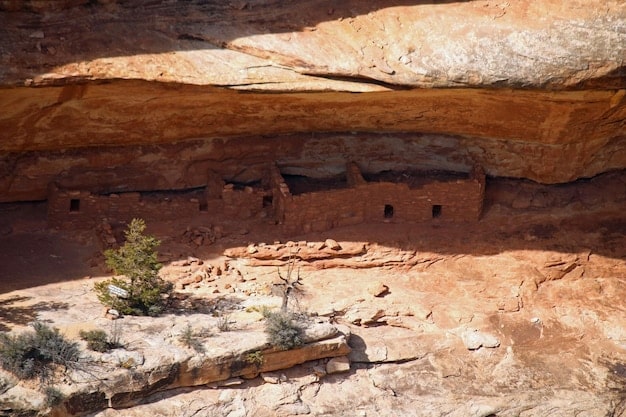
The Ethics of Archaeological Excavation: Balancing Scientific Discovery with Respect for Native American Heritage involves navigating complex moral considerations to ensure archaeological research respects indigenous cultures and protects ancestral sites, while advancing our understanding of the past.
Archaeological excavation is a powerful tool for uncovering the past, yet it carries significant ethical responsibilities. The Ethics of Archaeological Excavation: Balancing Scientific Discovery with Respect for Native American Heritage requires careful consideration of the impact on indigenous communities and their cultural heritage. This article explores the multifaceted ethical landscape of archaeological work in the United States, emphasizing the importance of collaboration, preservation, and respect.
How can archaeologists ethically navigate the excavation of sites that hold deep cultural significance for Native American tribes? What are the key principles that should guide archaeological practice to ensure it benefits both scientific knowledge and indigenous communities? Join us as we delve into the complex world of archaeological ethics.
Understanding the Core Principles of Archaeological Ethics
Archaeological ethics are a set of moral principles that guide the conduct of archaeological research. These principles aim to minimize harm, promote collaboration, and ensure that archaeological work respects the rights and cultural heritage of all stakeholders. Key principles include informed consent, respect for human remains, and the preservation of archaeological sites.
Informed Consent and Collaboration
Obtaining informed consent from Native American tribes is crucial for ethical archaeological practice. This means engaging in meaningful consultation, sharing research plans, and incorporating tribal knowledge into the excavation process. Collaboration fosters trust and ensures that archaeological work aligns with tribal values and priorities.
Respect for Human Remains and Cultural Items
Archaeological sites often contain human remains and cultural items that hold deep spiritual and cultural significance for Native American tribes. Ethical archaeologists treat these remains and items with the utmost respect, adhering to legal requirements such as the Native American Graves Protection and Repatriation Act (NAGPRA).
Preservation and Conservation
Preserving archaeological sites for future generations is a fundamental ethical responsibility. This includes documenting and protecting sites from looting, vandalism, and environmental degradation. Conservation efforts should be undertaken in collaboration with Native American tribes to ensure that cultural heritage is preserved in a culturally appropriate manner.
In summary, understanding the core principles of archaeological ethics is essential for responsible and respectful archaeological practice. By prioritizing informed consent, respecting human remains, and committing to preservation, archaeologists can contribute to both scientific knowledge and the protection of Native American cultural heritage. The Ethics of Archaeological Excavation: Balancing Scientific Discovery with Respect for Native American Heritage necessitates a comprehensive understanding of these principles.
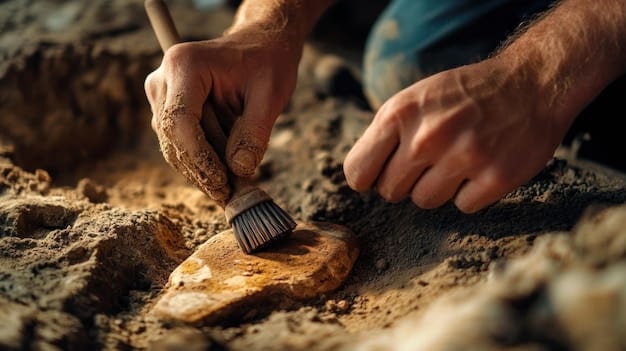
The Native American Graves Protection and Repatriation Act (NAGPRA)
The Native American Graves Protection and Repatriation Act (NAGPRA) is a landmark piece of legislation that addresses the rights of Native American tribes regarding the treatment and repatriation of human remains, funerary objects, sacred objects, and objects of cultural patrimony. NAGPRA requires federal agencies and institutions that receive federal funding to consult with tribes and offer repatriation of these items.
- Key Provisions of NAGPRA: NAGPRA mandates consultation with Native American tribes regarding the discovery and treatment of cultural items.
- Repatriation Process: The repatriation process involves identifying the cultural affiliation of the items and returning them to the appropriate tribe.
- Impact on Archaeological Research: NAGPRA has significantly impacted archaeological research by promoting collaboration between archaeologists and Native American tribes.
Challenges and Controversies Surrounding NAGPRA
Despite its positive impact, NAGPRA has faced challenges and controversies. These include difficulties in determining cultural affiliation, disagreements over the disposition of human remains, and the potential for NAGPRA to impede scientific research.
- Determining Cultural Affiliation: Establishing the cultural affiliation of human remains and cultural items can be complex and contentious.
- Balancing Scientific Interests with Tribal Rights: NAGPRA requires balancing the interests of scientific research with the rights of Native American tribes to control their cultural heritage.
- Implementation and Enforcement: Ensuring effective implementation and enforcement of NAGPRA remains a challenge, requiring ongoing dialogue and collaboration.
Ultimately, NAGPRA represents a significant step towards recognizing and protecting the rights of Native American tribes in the context of archaeological research. The Ethics of Archaeological Excavation: Balancing Scientific Discovery with Respect for Native American Heritage is significantly shaped by the principles and requirements of NAGPRA.
Ethical Dilemmas in Archaeological Excavation
Archaeological excavation often presents complex ethical dilemmas that require careful consideration. These dilemmas may involve conflicts between scientific interests and tribal values, the treatment of human remains, and the management of archaeological sites.
Conflicts Between Scientific Interests and Tribal Values
Archaeologists may face situations where scientific research goals conflict with the cultural values or religious beliefs of Native American tribes. For example, tribes may object to the destructive analysis of certain artifacts or the excavation of sacred sites.
The Treatment of Human Remains
The treatment of human remains is a particularly sensitive ethical issue in archaeology. Archaeologists must respect the dignity of the deceased and adhere to legal requirements such as NAGPRA. Collaboration with Native American tribes is essential to determine the appropriate treatment and disposition of human remains.
Managing Archaeological Sites
Managing archaeological sites to balance preservation, research, and public access can pose ethical challenges. Archaeologists must consider the impact of tourism, development, and looting on archaeological resources and work to protect sites from damage and destruction. The Ethics of Archaeological Excavation: Balancing Scientific Discovery with Respect for Native American Heritage involves addressing these complex management issues.
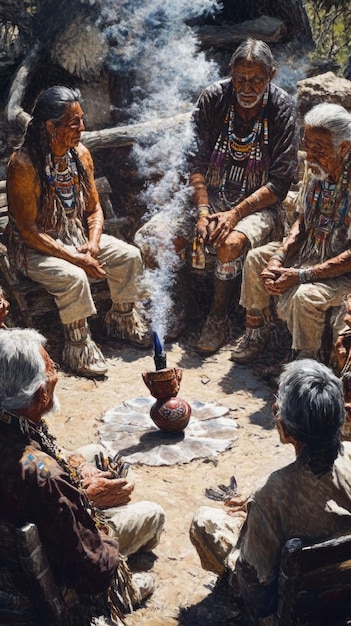
Best Practices for Ethical Archaeological Excavation
Adopting best practices for ethical archaeological excavation is crucial for ensuring that archaeological work respects the rights and cultural heritage of Native American tribes. These practices include community engagement, non-invasive methods, and cultural sensitivity training.
- Community Engagement: Engaging with Native American tribes from the outset of a project is essential for building trust and fostering collaboration.
- Non-Invasive Methods: Employing non-invasive methods, such as remote sensing and ground-penetrating radar, can minimize the impact on archaeological sites.
- Cultural Sensitivity Training: Providing cultural sensitivity training for archaeological teams can help promote respect and understanding of Native American cultures.
Documenting and Sharing Research Findings
Ethical archaeologists are committed to documenting and sharing their research findings in a transparent and accessible manner. This includes publishing research results in peer-reviewed journals, presenting findings at conferences, and sharing information with Native American tribes.
Promoting Archaeological Education and Awareness
Promoting archaeological education and awareness can help foster a greater appreciation for the importance of preserving cultural heritage. Archaeologists can engage with the public through educational programs, museum exhibits, and online resources.
By adhering to best practices for ethical archaeological excavation, archaeologists can contribute to both scientific knowledge and the protection of Native American cultural heritage. The Ethics of Archaeological Excavation: Balancing Scientific Discovery with Respect for Native American Heritage can be upheld through these proactive measures.
The Future of Ethical Archaeology
The future of ethical archaeology depends on continued collaboration, innovation, and a commitment to respecting the rights and cultural heritage of Native American tribes. Embracing new technologies and fostering interdisciplinary partnerships can help advance our understanding of the past while ensuring that archaeological work is conducted in a responsible and ethical manner.
Embracing New Technologies
New technologies, such as 3D scanning, virtual reality, and artificial intelligence, offer opportunities to document and preserve archaeological sites in innovative ways. These technologies can also facilitate collaboration and communication between archaeologists and Native American tribes.
Fostering Interdisciplinary Partnerships
Interdisciplinary partnerships between archaeologists, anthropologists, historians, and Native American scholars can provide a more holistic understanding of the past. These partnerships can also help bridge the gap between scientific research and indigenous knowledge.
Promoting Dialogue and Reconciliation
Promoting dialogue and reconciliation between archaeologists and Native American tribes is essential for building trust and fostering mutual understanding. This includes acknowledging past injustices, addressing ongoing concerns, and working together to create a more equitable and respectful future for archaeology.
In conclusion, the future of ethical archaeology is bright, provided that archaeologists remain committed to upholding the highest ethical standards and working in partnership with Native American tribes. The Ethics of Archaeological Excavation: Balancing Scientific Discovery with Respect for Native American Heritage will continue to evolve as we learn from the past and strive to create a more just and equitable future.
| Key Point | Brief Description |
|---|---|
| 🤝 Collaboration | Engage tribes from the start for informed excavation. |
| 📜 NAGPRA | Follow regulations for repatriation of cultural items. |
| 🛡️ Preservation | Protect sites from looting and environmental damage. |
| 🏛️ Respect | Treat human remains and artifacts with dignity. |
Frequently Asked Questions
The primary considerations involve respecting Native American heritage, obtaining informed consent, preserving sites, and appropriately handling human remains and cultural items. The Ethics of Archaeological Excavation: Balancing Scientific Discovery with Respect for Native American Heritage emphasizes these aspects.
NAGPRA requires federal agencies and institutions to consult with Native American tribes regarding the repatriation of cultural items. It promotes collaboration and ensures tribes have a voice in decisions affecting their heritage.
Archaeologists should immediately stop excavation, notify the appropriate authorities, and consult with Native American tribes to determine the proper treatment and disposition of the remains. The Ethics of Archaeological Excavation: Balancing Scientific Discovery with Respect for Native American Heritage dictates this protocol.
Non-invasive methods include remote sensing, ground-penetrating radar, and aerial photography. These techniques minimize the impact on archaeological sites while still providing valuable information about the past.
Community engagement fosters trust, ensures that archaeological work aligns with tribal values, and incorporates local knowledge into the research process. The Ethics of Archaeological Excavation: Balancing Scientific Discovery with Respect for Native American Heritage benefits significantly from this collaboration.
Conclusion
In conclusion, The Ethics of Archaeological Excavation: Balancing Scientific Discovery with Respect for Native American Heritage is a complex and multifaceted issue that requires careful consideration and ongoing dialogue. By prioritizing collaboration, respecting cultural heritage, and adhering to ethical guidelines, archaeologists can contribute to both scientific knowledge and the preservation of indigenous cultures.
As we move forward, it is essential to continue fostering partnerships between archaeologists and Native American tribes, embracing new technologies, and promoting a more equitable and respectful approach to archaeological research. This will ensure that the stories of the past are told in a way that honors the dignity and rights of all people.

